In our 48th edition of the Donut Dollie Detail, Karen tells how being a teacher right out of college wasn’t exciting enough – so she applied to be a Donut Dollie, that she may have been the only Donut Dollie to have dinner with her father while they were both in Vietnam and how she and her Donut Dollie partner ended up rock & roll dancing for South Vietnamese kids.
Please share the Donut Dollie Detail with family, friends and veterans you may know, and make sure to like/follow us on Facebook to learn when the next edition is posted.
Please meet Red Cross Donut Dollie Karen Kent…
What prompted you to join the SRAO (Supplemental Recreation Activities Overseas) program and want to go to Vietnam?
I was teaching high school math during my first year out of college. I wasn’t enjoying it very much because this was in Atlanta during the civil rights era. I wanted an adventure, so explored living on a kibbutz or joining the Peace Corps. I was the sponsor of the high school Red Cross club and read the monthly magazines. One article described the SRAO program and I knew that was what I wanted to do. My father was a career military officer and had been in Vietnam already as a MACV infantry adviser in the Delta. I wanted to better understand both the war and the antiwar movement. My dad was extremely proud of me going to Vietnam.
When and where were you stationed in Vietnam? Did you go by a nickname?
I was in Vietnam from 1970-71 and was stationed in the northern part of the country (I Corps) from June 1970 to early December 1970 at Camp Eagle with the 101st Airborne Division and six months in Chu Lai with the Americal Division from mid-December 1970 to June 1971. At both places, we lived in trailers with a bunker in the middle of the trailers. Camp Eagle took their job of protecting us very seriously – there was a fence around the trailers and a guard at the gate 24/7. At Chu Lai, it was much looser – no fence and no guard, but we were close to the Commanding Generals’ residence, so it seemed safe.
I had no nickname in Vietnam.
What was a routine day like in Vietnam?
Most of the work at Chu Lai and Camp Eagle was done on firebases. Most of the firebases were on mountain tops. Vietnam is a beautiful country and I loved flying in Huey helicopters with the doors off and seeing the coastline, the rivers and the mountains. We would do 2-3 programs on a firebase, often setting up our gear on sandbags surrounding the artillery. Then, if time permitted, we’d walk around and talk to the guys individually or serve them a meal so we could see more men. Occasionally, we’d attend a memorial service for infantry guys who had died or a church service.
The helicopters that dropped us off were also taking/picking up guys in the field, so if there was a lot of field activity, we’d be delayed getting off the firebase. Luckily, I never had to spend the night on a firebase! The guys were so bored that they loved seeing us arrive and we always got a good turnout. We also went to very small communication bases where there would only be 2-4 men. We’d sit and talk, rather than do the activities. I particularly enjoyed that. I think this experience led me to becoming a mental health therapist, which I did for 40 years.
Did you ever have any “close calls” either on base or in any vehicles?
I was standing on the steps of my trailer in Chu Lai watching bombs hit the airfield about a mile away. Fortunately, being young and naïve, I wasn’t frightened. When the siren went off telling us to go to the bunkers, we would run a block to the commanding officer’s bunker, because our bunker had rats! Also, I was on a firebase when explosions started going off. The guy nearest me threw me to the ground and threw himself on top of me. Then they found out it was an engineering unit clearing land with explosives and they forgot to warn the guys on the firebase. But it was very sweet that the guy just automatically acted to protect me.
Were you ever injured while in Vietnam?
I was sitting in a truck with the door open and my foot in the door area waiting for our helicopter to pick us up. When it landed, the air from the helicopter slammed the door shut on my foot. The men helped me into the copter and flew me to the nearest medical hospital. They were going to put me on a stretcher, but I was too embarrassed (not sure why), so two men carried me between them. Because the pilot radioed ahead that a Donut Dollie was being brought in, there were a ton of people waiting just to see us. The old-fashioned type of cast was put on my foot for 6 weeks. It was too difficult to get in and out of the copters, so I had to do activities on base the whole time. I really missed the flying and the firebases.
What was it like to visit the soldiers in the hospitals?
I only visited a hospital maybe three times, since most of our work was on the firebases. I did spend a couple of weeks myself in a MASH-style hospital when they thought I had malaria. They debated where to place my bed. The doctors decided not to put me in a unit where the men were healthy enough to want to talk to me, so they placed me at the end of the room on the recovery unit and surrounded my bed with screens. Most of the men there had been in surgery and were coming out of anesthesia. I even heard them interrogating North Vietnamese while they were groggy. Not a good environment for recovery!!
My dad had just come into country for his second tour. They allowed him to come from Saigon to Chu Lai to visit me for two days. It was really unbelievably good seeing him, but it was also the most homesick I have ever been in my life. After he left, I told the doctor that if he would release me to the Donut Dollie trailers, I would follow his directions exactly. I had just been at Chu Lai briefly when this happened, so I wasn’t close to the other women yet. That’s where I met Terre Deegan Young (see end of paragraph), who visited me every day and helped tremendously when I moved back to the trailer. I was in bed another two weeks. Terre and I remain friends to this day. The diagnosis was changed to “undiagnosed fever”, but they think it was severe food poisoning, because a third of the unit I served Christmas dinner to on a firebase also got the same illness.
You can read Terre Deegan Young’s own Donut Dollie Detail feature here.
How was the transition returning home to the United States?
My family lived in Hawaii at the time, so that’s where I returned. My mother picked me up at the airport and took me to a music concert in the crater of Diamond Head. I spent the day with my younger sister there. I was absolutely blown away. It wasn’t a good thing to do my first day home. I had trouble seeing everyone happy and carefree, when I had been in Vietnam 48 hours earlier with men who might not even return home.
I can’t tell you the number of friends who said “Someday you’ll have to tell me about your experience”, but none ever followed up. No one wanted to hear it. I stayed in Hawaii and worked in a book store for about six months waiting for two friends to get out of Vietnam. Then five of us met up in Germany, bought a cheap van, and spent six months living in the van and roaming Europe. All five of us (3 helicopter pilots, Terre, and I) processed our experiences as we traveled. It was a real healing time and allowed me to move on with life.
What would you like people to remember and understand most about the women who served?
We weren’t prostitutes! The men were kind and protective of us. When I was unit director, a lieutenant propositioned one of the women I worked with. I called his boss, who had him meet us at the Officers Club and he bought us a bottle of champagne. He was very embarrassed and contrite and knew he had blown it completely. Propositions were very, very rare in Vietnam. If any man even cussed in front of us, another man would say “Hey, there are ladies present!” and there would be an apology.
I would ache at the end of each day from smiling constantly. We were always “on”, because that is what the men needed. I grew up rapidly during my tour. I started the year as a shy, quiet person and ended the year as an outgoing, confident person. During all the challenges in my life since then, I’d tell myself “If I could handle Vietnam, I can manage this!” and it worked for me. Vietnam was a very difficult, but powerful year.
How do you feel Veterans think of your time having served with them? Have any Veterans expressed their feelings to you directly?
My experience with Veterans since Vietnam has been powerful. They are grateful that we were there, because we represented “home” to them. I’ve had no negative experiences. My dad would introduce me to his military buddies, as the daughter who went to Nam.
What are your fondest or most interesting memories of your time serving in Vietnam?
I had been in country for less than a month and a guy on a firebase was walking us to the helicopter. He turned to me and said “I’m going home next week and I’ve been wanting to do this for a year”. He dipped me back and passionately kissed me. Said “thanks” and walked away. The whole group of men burst into applause as I stood there stunned.
We accidentally ended up at a ceremony where the Americans were turning over responsibility to the South Vietnamese. After the ceremony, the South Vietnamese started playing music and asked me and the other Donut Dollie to dance by ourselves. The only dancing we knew was rock and roll, so we just started dancing. Soon, kids joined in. It was a very strange experience, but we knew we couldn’t say no.
I met my dad for dinner in Saigon when I was going on R&R. He had his arm around my shoulder as we walked to the Officer’s Club. I noticed men staring at us and finally asked my dad what was going on. He grinned and said “They think you’re my girlfriend”. Of course! No one would imagine a father/daughter together in Vietnam.
I got a call late one night from a male friend of mine with another Division. I could tell he was slightly drunk. He said “None of the guys here believe I know an American woman in Vietnam”. Would you tell them it’s true?” I gladly talked to several guys letting them know that yes, it was true.
After I left the country, this friend got medevacked to the Philippines. Years later we met up in Santa Cruz, CA. He told me that he believed my visit to him in the military hospital in the Philippines saved his life. I had not visited him, but I could never tell him the truth, because what he believed was so powerful.
PLEASE NOTE: THERE ARE 47 PREVIOUS EDITIONS OF THE DONUT DOLLIE DETAIL THAT CAN BE SEEN HERE, JUST SCROLL DOWN TO READ EACH (AT THE BOTTOM, YOU’LL SEE A LINK TO GO TO THE NEXT PAGE OF DONUT DOLLIE DETAIL FEATURES)
American Legion, American Legion Auxiliary, VFW Auxiliary, Veterans of Foreign Wars, Veterans of Foreign Wars Auxiliary, AMERICAN RED CROSS OVERSEAS ASSOCIATION, ARCOA, , Donut Dollie Detail, BERKSHIRE, BERKSHIRE COUNTY, Cu Chi, CUMMINGTON, Documentary, Donut Dollie, Donut Dollies, DONUT DOLLY, HAMPSHIRE COUNTY, HELICOPTER, Huey, memories, Nha Trang, Pleiku, RED CROSS, Schertz, SRAO, Supplemental Recreation Activities Overseas, Tuy Hoa, veterans, Vets, VFW, vietnam, Vietnam Vet, Vietnam Veteran, Vietnam Veterans Memorial, Vietnam War, VVMF, donutdollys.com, donutdollies.com, thedonutdollies.com, air base, Chu Lai, Phan Rang, An Khe, Dong Ba Thin, Cam Ranh, Bien Hoa, Korea, Korean War, Phu Loi, Long Binh, Quang Tri, Phu Bai, Quy Nhon, Lai Khe, Camp Eagle, Camp Enari, Xuan Loc, Dong Tam, Dian, Di An, Binh Thuy, Da Nang, Danang, Saigon, Ho Chi Minh City, GI Film Festival, Palm Springs International Film Festival, Phoenix Film Festival, Tiburon International Film Festival, Ancient Way Film Festival, Grand Teton Film Festival, Julien Dubuque International Film Festival, Berkshire International Film Festival
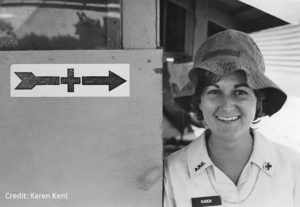
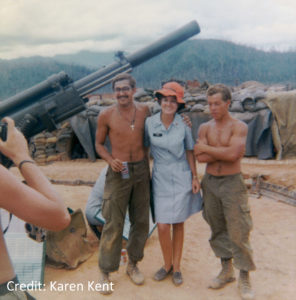
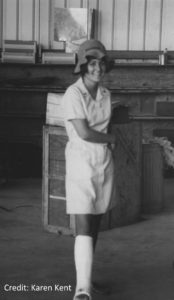
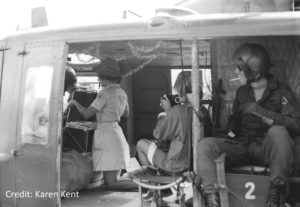
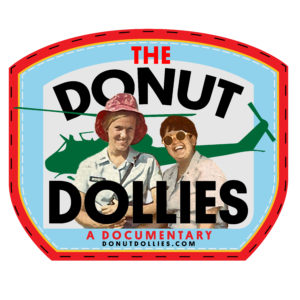
We worked together at Chu Lai! With Terre
Karen, thank you for your Service an SC Welcome Home.
Tuy HOA AB, Vietnam 1970
I think all of us in our little group loved hearing about your Vietnam experiences Karen. I’m so happy that you sent this link along to me. You never struck me as shy and now I now why! Thanks for your service!
I just read the brief history of Karen Kent, Donut Dollie in Vietnam. I was not in Vietnam: I joined National Guard in 1972, and served in an infantry unit. During a life of journalism, I’ve interviewed many Vietnam veterans, including James Allen Logue, who was a professional photographer before he served in Alpha Company, 4/31, 196th LIB, Americal Division. During the war as an infantryman, he carried a 35mm camera and came home with 2500 photographs. He and I traveled the country (thanks to our wives) and interviewed 71 other Alpha veterans and survivors. Our book of narrative and photography will be published in June by Texas Tech University Press. “Rain In Our Hearts” will be available in bookstores and on Amazon by mid-July. One photograph includes a man in the company with Donut Dollie Kate Beckwith,, who with her group was visiting LZ West. Ms. Kent, you and all the Donut Dollies served the nation well. All those I interviewed spoke highly of the DDs and how much their visit to LZ West helped them, if for no other reason, than just to see a young western woman. Along with the men who served, you women in Vietnam are among the best.